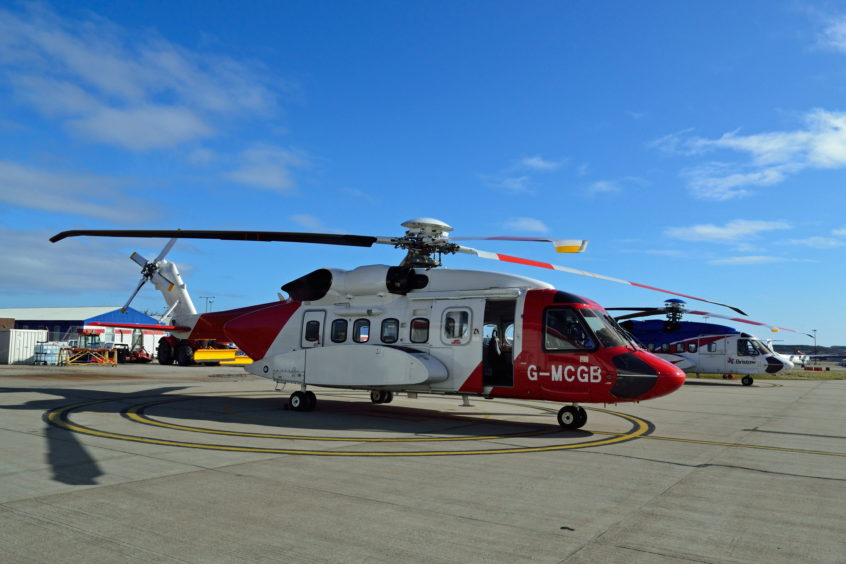
North Sea industry recently had a week free of evacuations of workers with Covid-19 symptoms from offshore platforms.
The number of workers taken ashore in medivac flights by “coronacopters” is one of the main measurements being used to judge the effectiveness of industry efforts to tackle the virus offshore.
Between the end of March and late June, 133 flights carrying 236 passengers with symptoms were recorded.
Well over half of the flights had taken place by the end of April.
Since then, the numbers appear to have stabilised as helicopter and platform operators got a grip on the situation.
No category C flights for removing workers with symptoms were recorded during a seven-day spell spanning late May, early June, according to figures provided by Oil and Gas UK (OGUK).
A small number of these medivacs have been recorded in the subsequent weeks – the worst of which saw three flights transport a total of four workers.
At the height of the crisis in April, 55 riggers were flown home on 30 flights in consecutive weeks.
It is thought the slight rise in recent weeks could be caused by an increase in manning levels offshore.
More than 11,000 people were working in the North Sea on average at the start of March, but that dropped to around 7,000 a month later as companies tried to ensure social distancing and contain the spread.
The total has now crept back up to around 9,000.
Graham Wildgoose, aviation advisor at OGUK, said: “The figure had risen slightly from zero use of the C-Med aircraft and this may be attributable to the rise in personnel on board (POB) oil installations.
“However, this would appear to now be stable and even reducing overall by percentage of total offshore POB.”
Trevor Stapleton, OGUK’s health, safety and environment director, said: “The reduction in C-Med flights is a recognition of both industry imposed barriers and UK measures being effective.
“As we move into the recovery phase – which will mean increasing POB offshore – the missing piece of the jigsaw is still around asymptomatic testing for our offshore workforce. This could be carried out using the NHS UK test centres and we continue to make the case for this with both the UK and Scottish governments.
“However, now is not the time for us to become complacent and we will be paying close attention to the figures going forward.”
Recommended for you

